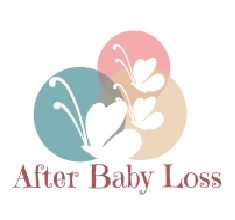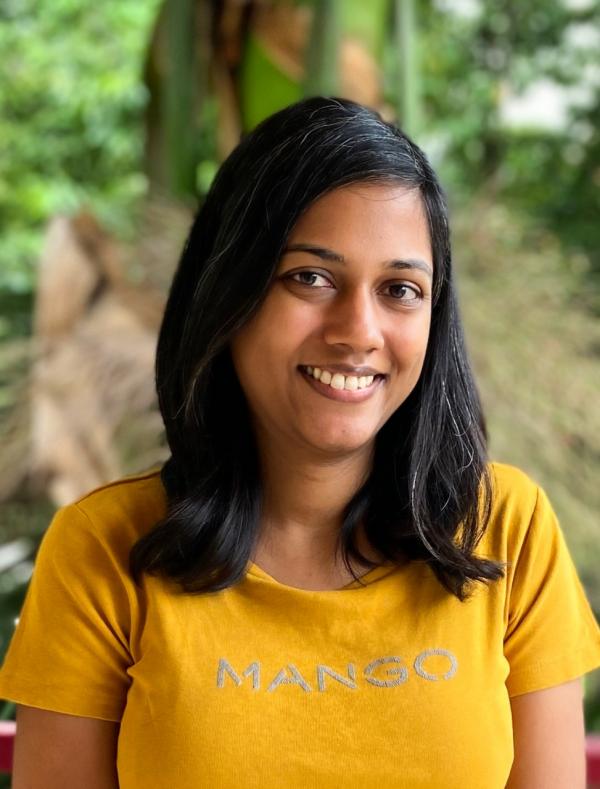
Miscarriage or loss of pregnancy is never the fault of the woman. Kavita Nehemiah, who suffered a miscarriage in her first pregnancy, has co-founded a social community to help women navigate life through baby loss and grief and understand this.
I had a miscarriage in 2019 at age 32.
I had conceived with great difficulty, after almost two years. I used to think infertility was written on the cards for me. I had been diagnosed with PCOS (Polycystic ovary syndrome) and almost absent periods.
But finally, after changing multiple OBGYNs, homeopathy doctors, fifteen months of trying every ‘natural’ method known, keeping a close watch on my ovulation and menstrual cycle, and with innumerous examinations of my pelvic, uterus, cervix, ovaries, and fallopian tubes, we succeeded!
But like any newly pregnant couple we started dreaming of our lives as new parents. With every week and each milestone we became more hopeful and allowed ourselves a little more joy.
At seven weeks we heard that precious, strong heartbeat. Life was amazing and the excitement was building up. My scans were perfect and by 12 weeks I was officially in the ‘safe zone’.
At around week twenty, our world came crashing down. It started with a little bleeding, and then a sudden stillness in the uterus. A quick rush to the gynaecologist, followed by a visit to the radiologist rudely shattered all our joy. The report said ‘Intrauterine fetal demise.’
Devastated by pregnancy loss
I felt the wind knocked out of me, I physically felt my heart shattering and the pieces falling to the pit of my stomach. My legs buckled and I wasn’t able to move. The rest of the day was a blur. Of course, it is just devastating. I think the overwhelming feeling apart from grief and devastation is also a feeling of isolation. At that point in time I didn’t know of anybody else in the circle who had had a loss or at least spoken about it openly. I think one of the reasons I want to talk about it openly is because if anybody in my circle ever has a miscarriage, I want them to know that they are not alone.
Found running therapeutic
Immediately after my pregnancy loss, I did try to keep myself busy and engaged. Staying at home, you tend to wallow in depressive thoughts. I definitely did plunge back into work pretty soon. I also took up running in a big way. I was running before as well, but now I had set a goal of running half marathon. I used to train for it everyday. With a busy schedule, I would be quite tired by the end of the day and I was able to sleep well at night, with no negative thoughts keeping me awake.
Stigma and shame
There is such a huge stigma around pregnancy loss. It is prevalent worldwide, but it is definitely more exaggerated in India. The birth of a child is considered a blessing here, but the loss is considered an equally bad omen. And the women is held responsible and made the sole target. She is blamed and cursed, sometimes fiercely. The role of karma or divine retribution is brought into play. ‘You deserve this’ anger is vented at her.
Need For A Safe Space
We are a group of four women who have started this social media community. We have all experienced loss at various stages. So when we met online, we hit it off well. The common thought bothering us was that there was no platform in India where conversations and discussions around loss of pregnancy could take place. We felt its absence acutely, especially because we wanted someone to share our predicament. Hence we decided to set up a virtual platform, a safe space for women who have had miscarriages and suffered baby loss. They could join in and share their feelings openly and candidly without being judged and chided. Even parents and families who have been through loss could connect.
It is targeted specifically at Indian families because there is no other similar community available online. There are many global, more western organisations, but nothing specifically for India. We wanted to start something that is a safe place for Indian families. Because there are a lot of cultural aspects that are unique to India that people from other geographical regions don’t understand or necessarily talk about on these forums.
Response to the group
We have now about a 100 women who have joined. We also have members who prefer to be silent participants. They do not wish to speak about their own experiences but find solace and comfort listening to and learning from others. We have a private Facebook support group as well. We have also started a Grief Companion Program. It aims to pair a mother going through pregnancy / baby loss with a fellow mom who has gone through a similar loss and is a little ahead in her journey of grief. The idea is to provide community and companionship in your grief, someone who understands every feeling you are going through, every tear and can hold your hand through the journey. We have paired mothers who have had full term losses, mothers who have older living children also grieving the loss of a sibling, mothers who've lost NICU (neonatal intensive care unit) babies and mothers who've had early losses. The primary intent is to provide support so that people don’t feel isolated and are able to speak to someone about it. That is most powerful aspect of the group.
I don’t think you get over your grief of miscarrying. You still have a lot of triggers to bring back tears and memories. It is a very traumatic event, physically, emotionally. Of course with time you learn how to move on, you learn how to cope with it and survive. Life does go beyond.
Second pregnancy
I was fortunate to conceive four months after my miscarriage. My first pregnancy was extremely uneventful, it was a very textbook pregnancy. Everything was great, until the day it wasn’t. But my second pregnancy was hugely problematic. Everyday of those nine months I lived on the edge. I was a bundle of nerves. To be honest, it was not something I enjoyed. I never had you know how women talk about ‘it is one of the most beautiful times of their life’, I never had that experience. It really wasn’t. I knew of every possible bad outcome that could happen. I was bleeding, I was on bed rest, I had a lot of scanned results that were not encouraging, I developed gestational diabetes, I had problems with my amniotic fluid, I had a host of issues and scares along the way.
But I survived. I have a 15 month old son now.
Advice to women
A loss of a pregnancy is never caused by what women do or don’t do. I really want mothers to not feel any sort of guilt. We always replay back in our minds whether we had been wise about our pregnancy and blame ourselves - Did I carry something heavy? Did I drive over a speedbreaker very fast? Did I have too much coffee during my pregnancy? We really dwell on these details and introspect endlessly and tortuously. Some also feel that biologically, women are born to have babies and if they are unable to do it, it is a kind of failure on their part. That is a very defeating and crushing feeling. Therefore one thing I want to stress unequivocally that women should never be blamed or questioned for a miscarriage or loss of pregnancy.
October 15
The group we created is called - After Baby Loss. We are going to do series of live sessions on Instagram and Facebook. On October 15, Pregnancy and Infant Loss Remembrance Day, we will definitely do a Wave of Light which is lighting a candle in the memory of all lost babies.








